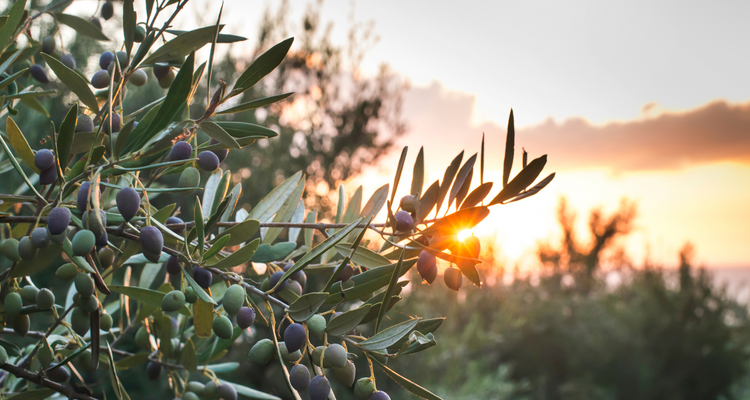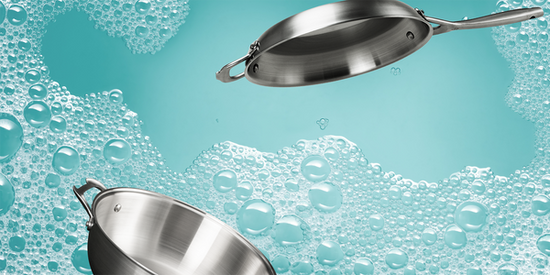Meet Your Makers | Kathryn Tomajan of FAT GOLD


Before she was Kathryn Tomajan of Fat Gold, she was Kathryn Tomajan, student at “Hogwarts for Food” in Pollenzo, Italy (officially, ahem, The University of Gastronomic Sciences).
Partway through the program, she had developed a palate fine-tuned to the subtleties of wine, coffee, cheese, and—most crucial in determining her future—olive oil. Thanks to a site visit in Tuscany, for example, she knew that what she’d considered “olive oil” for most of her life was likely fairly rancid. (Fun!) Having thrown her life savings into this moment, Tomajan says she was ready for such a lightning bolt.
So, down came the bolt (OLIVES, it said), but perhaps thanks to a previous life in communications and marketing, the thing that intrigued Tomajan most about olive oil wasn’t necessarily the product, gorgeous as it was, but the myriad, unchecked ways in which that product was labeled, marketed, and sold.
Turns out the shadowy sub-realm of the olive oil world was rife with fraud and adulteration, driven by a market frenzy for extra virgin oil at all costs—a subject that soon became the focus of her master’s thesis as she began researching supply chains and production all over the world. The work brought her to Australia, where she interned with Joan McGovern, the operator of a small mill in southwest Victoria staffed entirely by women.
The experience was brief, but left its mark. She returned home to California to contemplate all the avenues down which her newfound knowledge might take her, and put her new tasting abilities through their paces, training with the California Olive Oil Council Sensory Panel (which she would eventually join as a full member) evaluating the quality and defects of Californian olive oils. Still: something was missing.
“I was only with [Joan] for a couple of days, but we really connected and it was very impactful for me.” Now, she says, with her thesis behind her, “I wanted to work with my hands. I wanted to know everything.” The answer seemed obvious, albeit thousands of miles away: she returned to Australia and became McGovern’s apprentice. “That's how I learned how to make olive oil,” she says. “That's where it started.”
Now, Tomajan oversees two olive oil operations—a rarity for a woman anywhere in the world. Along with Robin Sloan and Bryan Tradup, she produces olive oil that functions as a ready-made lightning bolt, trapped in tin, emblazoned with the Fat Gold moniker.
In honor of this tin’s inclusion in our inaugural Big Fat Box, we spoke about Fat Gold’s beginnings, and what it can do for our understanding of quality and access.
—Cassandra Landry

It’s been about five years since you first leased a grove in Sunol. I’m curious how your relationship to olive groves has evolved since taking one under your wing, and deciding to expand your sourcing in the way that you guys have.
The heart of what I do is processing: taking the raw olive and turning it into magical olive oil. That's how I got my start, and that has always been where my expertise and my interest lies. But when we got the opportunity to lease that sweet little olive grove in Sunol, it was an opportunity for me to get experience with the growing and cultivation of olives—a missing piece in my education about olive oil as a product.
Being able to take that very small three acres of olives and learn what that was all about helped me make better olive oil in the mill. And: it’s still probably one of the hardest things we've ever done. That experience taught me that farming is hard. Not just hard, but relentless.
The thing that I'm drawn to about food production, and especially seasonal food production like olive oil, is that for me it is almost like a movie production or a stage play. You've got two months to make olive oil, because that's when the olives are ripe. It's chaos; it's about problem-solving, and that's exciting for me. That's much more my temperament. The “slow and steady” of farming was really hard.
I love farmers no matter what, but especially those who grow beautiful, interesting olives. Once we stopped operating the grove in Sunol, we could put all of our energy into building relationships with this network of farms that we've been working with now for years. It’s been an absolute emotional rollercoaster, these last five years, but it allowed us to grow our business in a way that we wouldn't have been able to do. In the end, that’s much more rewarding for me than sweating and growing them myself.
How is Fat Gold a product of its time? What unique characteristics make it a distinctly modern offering?
There’s two parts to that: the first is about olive oil production in California generally, compared to what I will cautiously call the “Old World": production that has been around for thousands and thousands of years, in the Middle East and North Africa and all throughout the Mediterranean in Europe.
There's an interesting kind of production that happens in parts of the world with such long traditions of olive oil production. There's just a lot more olive oil infrastructure because it's been in history and cultivation and culture for so long. In places like Spain (which still produces most of the world's olive oil) and Italy, there's literally a mill in every town. Maybe multiple mills. Everybody brings their olives to the frantoio to be processed, or they sell them to a larger company.
California's olive oil industry really took off in the last 20, 25 years or so. We have maybe 50 olive mills in the entire state. We started with modern technology, understanding much more about the chemical nature of olive oil and how to protect it and how to essentially modernize production. In California, we don’t press olive oil through woven mats, we spin it out in stainless steel with centrifugal force.
The flip side is that in California, it is very expensive to do business. Generally, it's very expensive to farm. Labor is expensive. Land is expensive. And to be an olive grower, you have to own land, which eliminates a certain population of being even able to engage in this kind of activity. You have to have the capital to buy a mill.
There's a couple typical profiles of oil producers in California. The first is relatively large farming families or farming companies who have decided to invest in olive oil. They have enough working capital to be able to put in their own mill, so they're vertically integrated, operating at a relatively large industrial scale. Then there's wealthy retirees who visited Tuscany and saw beautiful olive groves and decided that's what they wanted to do; they harvest their olives and take them to a local mill. Again, this requires wealth and capital.
Fat Gold is one of a handful of small companies in California that are redefining how to build an olive oil business. We’ve gone the route of not owning our own trees, which is in a way kind of risky, but it also makes us more nimble and able to adapt to challenges like crop failures—which we're seeing more often with irregular weather.
We just invested in an olive mill. So we are in control of one part of our production process, which feels very good. But the fact that we don't own land and trees makes us very unique.
There are some competitors who don’t have land but buy olive oil and co-pack it into pretty bottles. They really don't have a hand at all in their production; they're buying good olive oil, which they've found a good source for, and making it into a beautiful brand—even that has been good for the industry overall.

One of the most evocative things about “small-batch” production is the ability to feel the personal input in the results—there’s somehow an awareness of the work, in the flavor or the experience of tasting, that we don’t always get with a large label or mass-produced ingredient. How does that affect the choices you make?
Thinking about production in batch sizes helps counter the slippery slope into commodifying your product. It means recognizing that in production, there are variations in quality, and that that is okay. Not recognizing that is the reason behind commodification, right? Everything is produced to the lowest common denominator, and you're just trying to barely make it over the threshold to be able to label it however you need to label it, extra virgin or otherwise.
The heart of how we produce is the batch. I cannot let go of that mentality. And the batch really starts with the farmer relationship that we have and knowing our inventory of olives and how they all fit into the different programs that we have. A batch might mean all of these olives are the same variety from the same farm, and we get to tell the entire story about who grew these olives, where they came from, how we made it, what choices we made in the mill, and what the resulting flavor profile is.
At the end of the day, what I'm interested in is making interesting olive oil that tastes really good. I have no interest in making olive oil that tastes exactly the same every time. We do make blends that I want to be somewhat consistent. But it's an interesting challenge every year because I want those to have generally a similar flavor profile, but I do that by taking batches and blending them together. I feel like when I'm doing those blends, it's like all of my collective knowledge that I've gained over the last decade coming together.
Fat Gold, notably, has extensive educational offerings woven into its brand, from basic olive oil primers to the mechanics of harvest and milling. Why is this type of stratified knowledge important to surface to consumers?
The education piece, from my perspective, is absolutely necessary. It's crucial for survival, because we are making an expensive product and we have to show people that it is worth the money, that it's as interesting and nuanced as other kinds of specialty food products. We have tried to be very transparent about what it takes to make a product of this quality.
It’s unfortunate that people have decided that extra virgin is the only product they can buy. Everybody wants extra virgin, but are not willing to pay extra virgin prices. There was one zine where we used a graph to show people how much every step of the process cost us. That's just real, and it helps. I think it builds loyalty to our brand, but I also hope it builds loyalty to using the best olive oil that you can afford.
And even though virgin oil is not as technically perfect as extra virgin oil, it still is super nutritious. It's still very good for us, and it’s a less expensive alternative to use in food manufacturing. When we have a batch that doesn't go right and we know it's not extra virgin, we partner with soap makers and cosmetic companies that are doing cool things so that it doesn't get wasted.
I realize our oil is expensive. I just hope that even if people can't quite do the price point, maybe they'll glean some information from our olive oil guide. If it peaks their interest, they can apply that discernment about how things are made and where things come from to everything that they buy.



